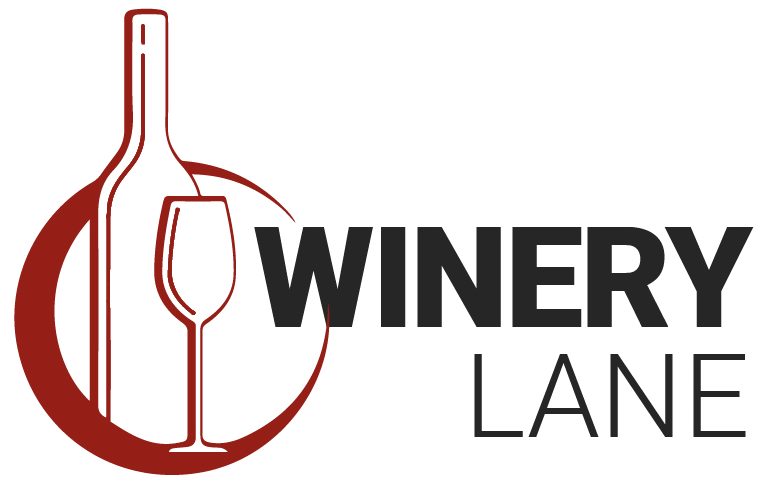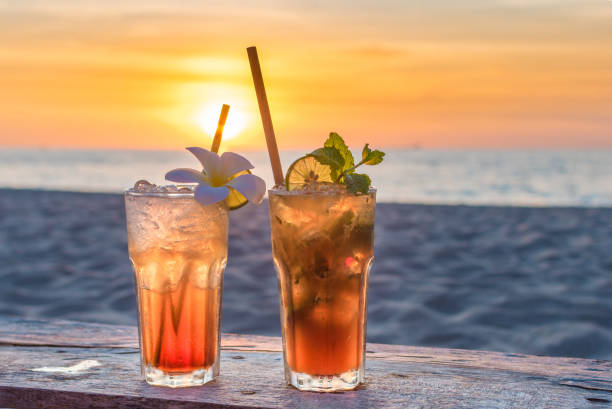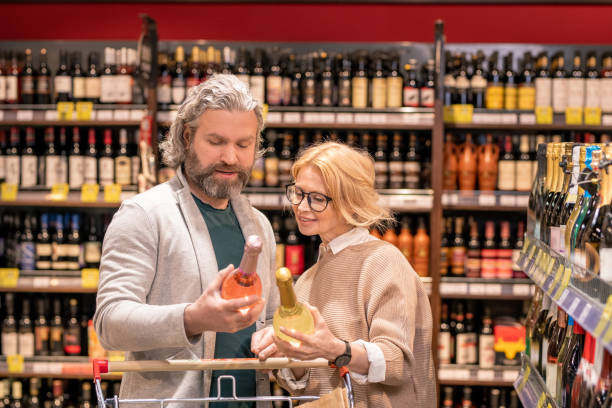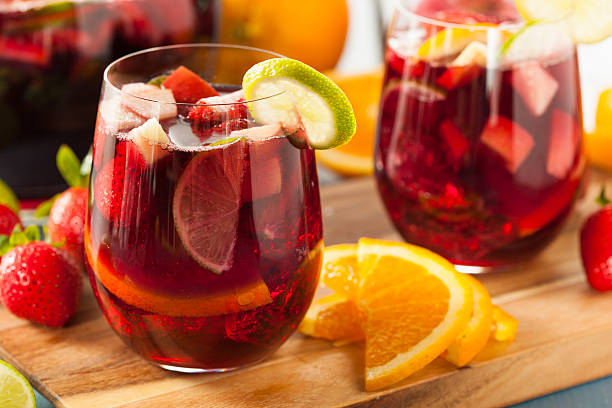This is a wine glossary, a wine dictionary, with all the important wine terms, “Wine Speak” and “Wine Phrases.” you need to be familiarized in an easy-to-use and easy-to-remember format.
Wine talk has its language. Once you learn the language and have a few phrases that you like, you can share the experience with others.
This Wine Glossary/Wine Dictionary helps you to understand the meaning of all keywords, wine terms, and phrases. It also provides wine-speak definitions. These words can be used to describe white and red wine taste experiences.
Here are some of the most common wine terms used by wine writers and critics. To learn how to become a better wine taster, check out How do you taste wine
This “Dictionary of Wine Words and Wine Speak” contains all the wine terms and words you need to be able to talk about and describe wine. This page also includes all the phrases related to winemaking and grape growth, as well as their meanings.
You will be able to understand better the reasons why you enjoy a particular wine. You will also be able to remember the types of wines you like and what you like to drink and taste.
The same terms and words are used by winemakers and writers when they write tastings to accompany wine scores or reviews. Please take a look at the Davis Wine Aroma Wheel to help you become more familiar with the aromas in the wine you are tasting.
Wine Glossary Dictionary: Definitions and all important Wine Speak Terms you need to be aware of:
Acetic Acid: All wine contains traces of acetic acid, which gives it a vinegar smell. Too many acetic acids can destroy a wine. Acetic acid is the main cause of volatile acidity (VA).
Acidic: All wines require some acidity. This makes the wine feel more fresh or lift it. A wine with too much acidity will taste sour and may feel lean, sharp, or angular. A wine that is too acidic will feel flabby.
Acidity Wines contain a variety of acids. Citric, tartaric, and malic acids are among them. Acidity is lower in wines from hot climates or vintages. Acidity is higher in wines from cooler temperatures.
Aeration – What happens when you add more air to make the perfume of a wine more noticeable?
Aftertaste One of the most important components of a good wine is its aftertaste. How long a wine stays in your mouth after you have finished tasting, it is a major factor in the price of a good bottle of wine. Assuming the flavors are enjoyable. The term aftertaste is the same as finish, length, or end note.
Age Wines, which can age, are high-quality wines as they improve with cellaring. Bottles that have been aged are called aged wines.
Aggressive A wine with a high acidity is often bold. This term is also used to describe wines that have hard tannins.
Alcohol Ethyl ethanol or ethanol is the by-product of fermentation.
Allies Forest region of France where Troncais trees grow. The wood from Troncais oaks is the best for wine barrels due to the tight grain.
Alluvial: Soil with a mixture of stones, gravel, and sand.
American Viticultural Region: Also called an AVA. Specific grape-growing areas are marked by their unique terroir and wines from that region. Alcohol, Tobacco, Tax, and Trade give AVAs that status.
Angled: Angled wines are lean. These wines are opposite to round or fleshy.
Anthocyanins: Pigments that give red wine its color.
AOC Appellation d’Origine Contrôlée: French government certification given to selected regions for agricultural products, most often wine or cheese.
Appellation: A specific area from which grapes or other agricultural products are produced. ForFor example, Pomerol is found in Bordeaux, and Napa in California.
Wine Aroma: Aroma describes the smell of wine.
Assemblage is a French word for grape varieties that are used to make wine.
Astringent: Astringent wines taste hard or sharp. Most of the time, this is because the tannins have not fully matured.
Attack the Initial taste of wine in the mouth.
Austere: Wines that are plain and lack charm, generosity, or roundness. When they age, some wines that were austere when young lose that quality. This could be the case with certain Bordeaux wines. A wine that is austere in its youth will also be simple as it ages.
AVA: Short form for American Viticultural Area. AVA-listed wineries must use fruit from the AVA at least 85% of the time. If the wine is labeled as being from a particular vineyard, then at least 95% of its grapes must be from the same vineyard.
Reverse: Reverse is used to describe a wine that is closed, restricted, or tight. The aromas and other characteristics of the wine will not be available to the drinker. This is a common characteristic of young wines.
Balance: Balance is a key trait that all great wines have, no matter where they are from. This term refers to all of the components that go into making a wine.
Barnyard: Wines that have this aroma can be described as earthy with animal scents, which remind the taster of a barn. This can be positive in small doses. This is a problem in large quantities. It can be due to a natural aroma that develops with bottle age or, in the worst-case scenario, from wine that was made in unclean facilities or barrels.
Barrel: A vessel used to age wine, usually made of oak.
Barrels Fermented: Vinified wines that have been vinified in barrels instead of tanks or vats. This is more common with white wine. Some producers do barrel ferment red wines. Microvinification is the term used for this process.
Barrel tasting: When the wine is not yet bottled and a taster tastes it.
Batonnage is a French word for stirring the lees.
BDX: Abbreviation for Bordeaux
Beefy: A large, masculine wine with a muscular style. This is the same thing as brawny.
Berries: Berries is another name for grapes.
Wines made from grapes. All red wines have a berry-like aroma. You may be reminded of blackberries, cherries, strawberries, black raspberries, or red raspberries.
Big A large wine is bursting with ripe and usually alcoholic fruits. This is not a big problem if the wine is balanced. Wines that are too big and out of balance aren’t fun to drink.
Biodynamic: Vineyard Management Techniques Based on Rudolph Steiner’s Writings. On one side are the best organic methods, while on the other, they can include the moon phase, alignment of the planets, or planting cow horns. You can laugh at it; that’s fine. It seems to work and is slowly but surely becoming more popular and accepted.
Blend: When a blend of grapes is used.
Blind tasting: Wine is not revealed to the taster. Theoretically, blind tasting allows for a more objective evaluation of wine. The taster knows the type of wine but not its specific name. Double-blind means that the taster does not know the particular wine.
The Body: The Body is used to describe how a wine feels and looks. Full-bodied wines tend to be high in alcohol.
Bold is a red wine of dark color with high alcohol content, concentration, and intensity.
Bordeaux Wine is a region in southwest France that is famous for producing some of the best wines on earth. This website has a strong focus on Bordeaux wine.
Age of the bottle: Before opening any quality wine, it is necessary to age it in its original container. This could take a few years for some wines. Some wines (such as the First Growths of Bordeaux) require up to 30 years for maturity.
Bouquet This is a different term than perfume. It refers to a wine that has secondary characteristics other than the primary fruit aromas.
Botrytis cinerea, the Sweetest wines in the world, is produced using this special fungus known as noble Rot. For a detailed explanation, see Sauternes.
The term “bouquet” is used to describe the aromas of a wine that are not grape or berry-based.
Big, masculine, and muscular wine. This is the same thing as beefy.
Allow the wine to breathe: By allowing the wine to live, you give it air. This improves its texture and perfume.
Bricking As red wines age or mature, their color changes from dark purple to ruby, then to brick. This is also known as browning.
Bright: The term for red acidic fruits.
Brix: A measure of sugar content.
Broker: A broker in Bordeaux is the same person as a courtier who acts as an intermediary between the chateau and the negotiants. Brokers are also used outside of Bordeaux to act as intermediaries between wine buyers and sellers.
Wine Drying Out: A wine that is drying out is losing its fruit and is on the decline.
Dumb: Wines with little substance are dumb. They are closed.
Earthy Earthy wine smells like truffles, forest floors, or mushrooms. This is a good attribute that is found in older wines.
Effeuillage is a French word for removing the lower leaves of the vines to allow the sun to hit the grapes directly, which will help ripen the fruit.
Elegant: Wines of elegance have a balance between soft, refined characteristics and texture. They are never heavy.
Elevage is a French word for the period that a wine is aged in barrels.
Echantillon is a French term for sample bottles used with barrel samples.
Endnote has the same meaning as end or finish. The sensations of flavors that your palate feels long after you’ve sipped and swallowed your wine are called the endnote. In most cases, the longer the finish or endnote, the better.
En Primeur : The same as futures. This term is used for Bordeaux wines only.
Estate Bottled: A term used mostly by American wineries. The grapes used in estate bottled wines must be 100% from vineyards owned or controlled by the winery. They also have to come from the AVA (American Viticultural Area), where the winery is located. The winery must bottle the wines.
Exotic: A positive word used to describe unique textures of a special kind that can only be found in fine wines and select vintages.
Expansive: Wines with a wide range of flavors, textures, and aromas.
Extraction: The ingredients in wine other than water, alcohol, or acidity. These raw materials are the soul of the wine. They make up between 1% and 1.5% on average of a wine.
Exuberant is a term that’s often used to describe young wines that are lively, fresh, and showy.
Wines that fade: Wines that fade lose their fruit and dry out.
Fat Wines with fat tend to be concentrated and have a lot more round flavors. This can be an excellent quality. As you will see, however, wines with flabby skins are not good.
Feminine: Similar to elegant but with a lighter concentration
Fermage: French word for tenant farming. This is similar to leasing in modern terms.
Fermentation is the conversion of sugars to alcohol (also known as alcoholic fermentation).
Field blend: Multiple varieties of grapes planted in a single vineyard are typically harvested and vinified together.
Five Growth: The term for the chateau that was classified as the fifth best in the Classification from 1855.
Is Filtered? The process of filtering wine is to remove solid particles.




